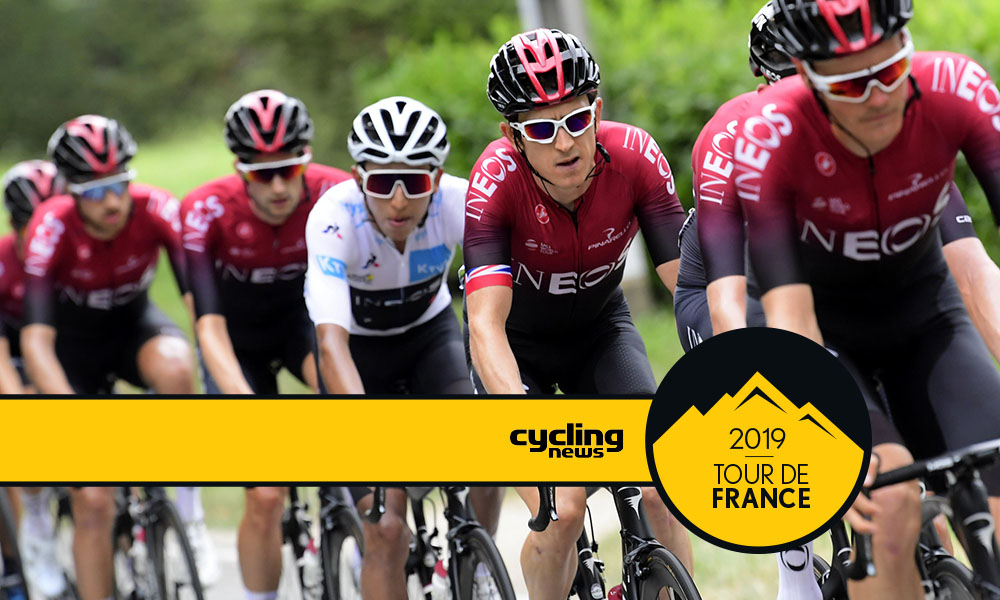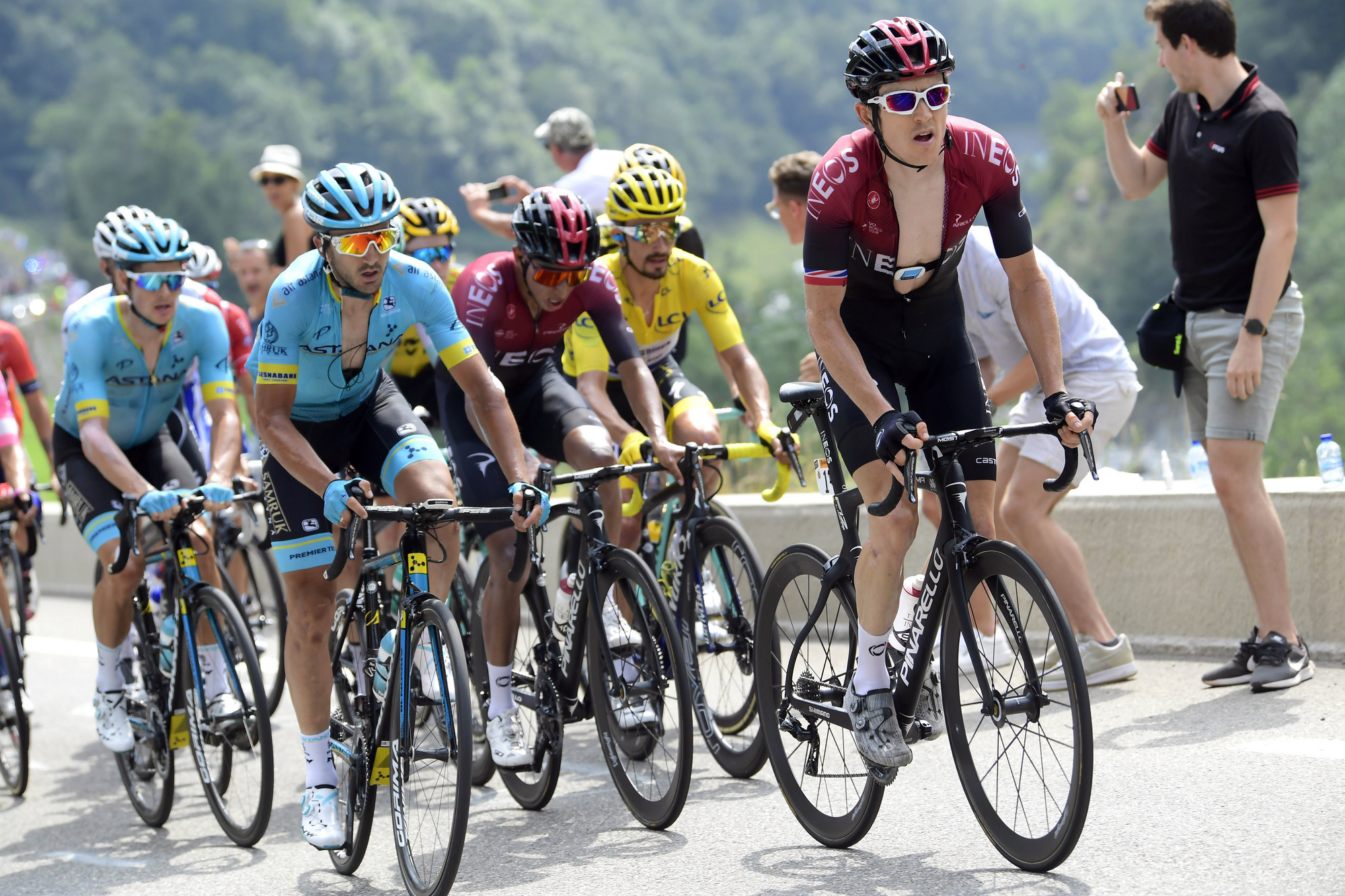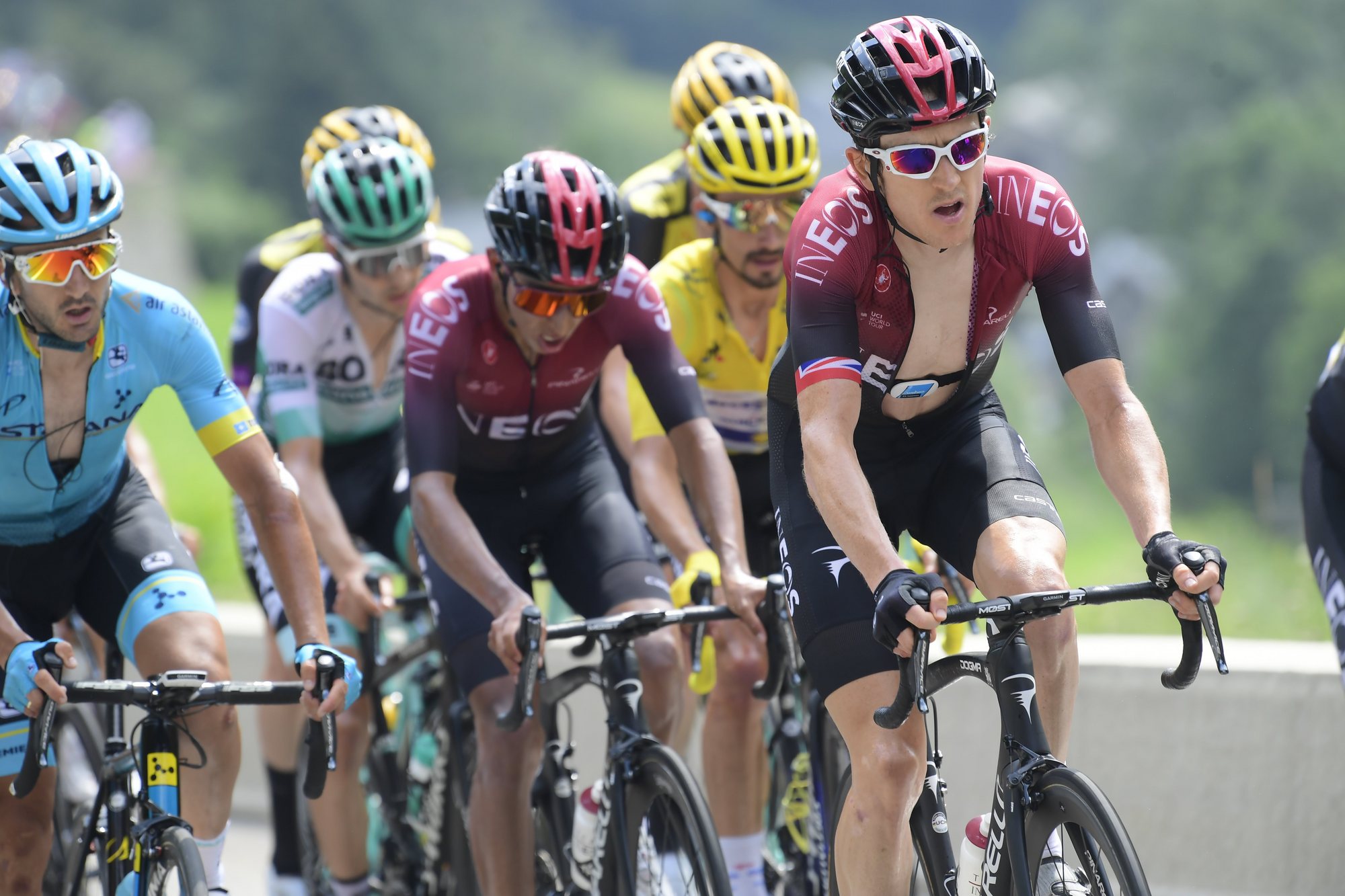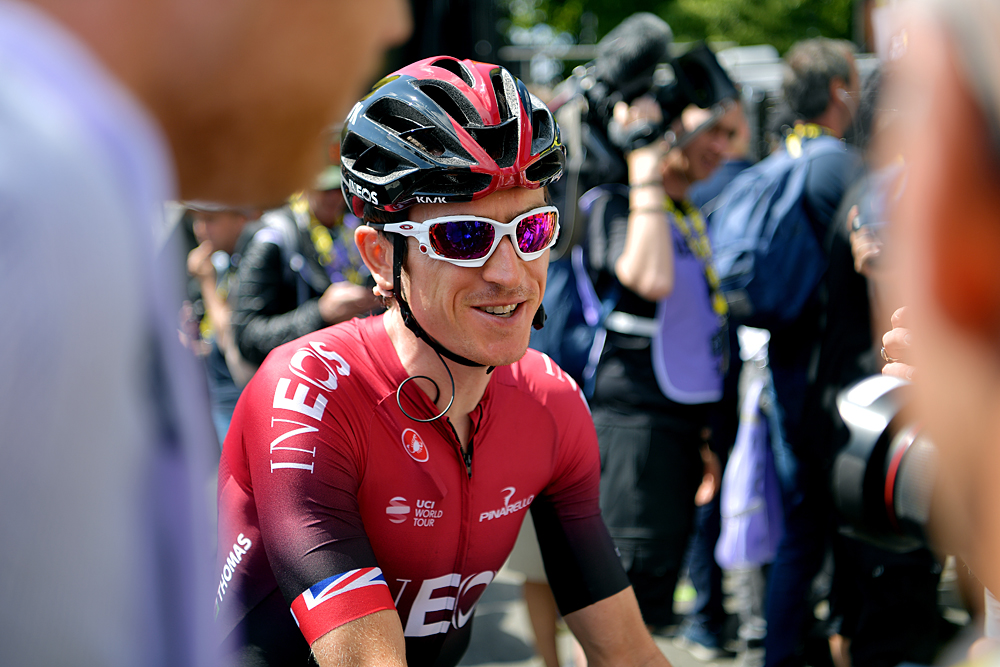Tour de France: Geraint Thomas suffers huge blow to title defence on the Tourmalet
Ineos forced to pick up the pieces after their worst day in the mountains in years




In the end, the time gap wasn’t the defining blow. Instead, it was the manner and style in which Geraint Thomas crumbled on the upper slopes of the Tourmalet on stage 14 of the Tour de France that mattered most. After all, the 36 seconds – plus bonuses – shed to several key rivals will not decide an entire three weeks of racing, but the fact that the Team Ineos leader had no response when stage winner Thibaut Pinot, race leader Julian Alaphilippe, and even teammate Egan Bernal, left him behind will leave deep wounds.
Tour de France: Pinot wins stage 14 atop Tourmalet
Tour de France 2019 stage 14 finish line quotes
Tour de France: Movistar miscues sink Quintana's GC bid
Tour de France: Pinot delivers for French fans on the Tourmalet – Video
Tour de France: Richie Porte 'explodes' on the Tourmalet but limits losses
Tour de France: Jumbo-Visma show their strength on the Tourmalet
A watershed moment: Alaphilippe tames the Tourmalet to keep Tour de France lead
The sight of the defending champion, hunched over the bars as his legs failed him while up ahead Bernal struggled with the enormity of the situation was one of the spectacular moments of this year’s race. And it’s a race that currently shows no signs of slowing to catch its breath. For the first time years, there is no single team to control proceedings, and the time gaps, other than Alaphilippe’s two-minute advantage, are all currently bridgeable.
For Thomas, and his illustrious Ineos squad, this was supposed to be the moment that rider and team put the maillot jaune under severe pressure on familiar turf in the mountains, but in the end it was Thomas who suffered the resignation of dropping time to Alaphilippe – and although he remains second overall in the general classification, that position looks precarious, to say the least. This was perhaps the team’s worst mountain performance since Bradley Wiggins' dramatic collapse on the road to Morzine-Avoriaz in 2010.
The Tour's most dominant team for almost a decade were simply overrun by a flurry of teams riding aggressively, first on the ascent of the Col du Soulor and then on the Tourmalet itself. On such a dramatic day, one could be forgiven for thinking that an era had ended.
Earlier in the morning, the plan was clear: Ineos wanted to take the opportunity to gain time on their rivals and test Alaphilippe’s mettle on higher terrain.
"The objective was to gain some time and to at least not lose any time. If there was the right moment we wanted to take it on but other teams did it so we didn’t have it. Movistar started really early but we had five guys up there. Then they kept on riding and from there we didn’t have to ride anymore," directeur sportif Servais Knaven told Cyclingnews as he walked towards the team bus at the finish.
No strength in numbers
In reality, Ineos never had a solid footing in the stage. First, Movistar ratcheted up the pace on the first climb and then Groupama-FDJ and Jumbo-Visma turned the screw on the final ascent. There were casualties galore with Adam Yates and Romain Bardet dropped on the Soulor, before Richie Porte, Enric Mas, Dan Martin and Nairo Quintana were all distanced before the final summit.
Get The Leadout Newsletter
The latest race content, interviews, features, reviews and expert buying guides, direct to your inbox!
Ineos had numbers on the final climb but they also lost Michał Kwiatkowski and Gianni Moscon much earlier than planned, while Wout Poels offered little resistance when Ineos did eventually look to assert some level of control on the climb to the finish.
One by one, riders lost contact but when Thomas slowly began to lose ground after a huge turn from Jumbo Visma's George Bennett, then an attack by Bora-Hansgrohe leader Emanuel Buchmann under the flamme rouge, there was no way back.
Bernal looked to cover moves as the Welshman struggled to even hold the wheel of a resurgent Rigoberto Urán, but the damage was done. By the time he reached the line, Thomas had conceded 46 seconds to Pinot and in the race for yellow, he is now looking over his shoulder rather than ahead, with the metronomic style of Steven Kruijswijk ticking louder and louder behind him.
Thomas would not return to the team bus after the finish. Instead he was driven by car straight to the team’s hotel. At the line he offered a glimmer of insight into his day.
"Not the best day," he said. "I just didn’t feel quite on it from the start. I was quite weak. In the end, I knew I just had to pace it. I didn’t really attempt to follow when they kicked.
"I just thought I should ride my own pace rather than follow them and blow up on the steepest bit at the end. It’s disappointing. I just tried to limit the damage."
When asked by Australian broadcaster SBS if he was unwell, he responded: “We will see the next few days. From the start, I just didn’t feel great. There’s still a lot to come."
Can you win this Tour? "Why not?" was his last response before leaving the scene.
The ‘why not’ is based upon the simple fact that Julian Alaphilippe continues to confound the critics and almost all logic with each pedal stroke. He now leads Thomas by 2:02 – an age in comparison to other time gaps inside the top ten – and the Frenchman raced intelligently on the Tourmalet, especially given the lack of cover he was provided by his squad.
Adjusting on the fly
Where Team Ineos go from here is unclear. Twenty-four hours ago the consensus was that Bernal, a relative loser in the Pau time trial, would serve Thomas in the mountains, but after one key climb the situation has far less clarity. The squad has deeper problems too, such as the relative weakness of their key domestiques when Jumbo-Visma and Groupama-FDJ tore up the Tourmalet, and the ability to revise strategy on short notice – both new problems for Ineos.
This is also not a team designed to chase a race, and if they are to regain any form of control they must race aggressively. That, of course, is easier said than done when your defending champion is dropped on the first true summit finish in the Pyrenees.
At the finish, lead DS Nicolas Portal looked to put a positive spin on the situation.
“We’re still okay for the GC," he said. "Geraint didn’t have a great last couple of kilometres but he kept on riding. He lost 30 seconds. It’s not a big blow, but sometimes you can have a bad day and hopefully that’s his bad day."
Portal did admit that the team’s strategy would need consideration ahead of Sunday’s second summit finish.
"We’re going to think differently but first we need to talk to the guys and do a debrief. I need to say now there are a lot of GC teams in the same situation. It was good to see Movistar taking the lead and more responsibility alongside FDJ. At the end of the day you want to see the best rider winning the Tour and if that’s Julian then that’s Julian. It’s quite a big gap before.
"It wasn’t a good day for Kwiatkowski or Moscon but that can happen. Kwiatkowski was really good at La Planche des Belles Filles and in the time trial. This can happen. For sure, some have to attack, but for us we first have to see and talk. If you want to attack then you have to have the legs and at the minute…"
Cyclingnews then posed whether the team had been on the back foot in such a major race before: “Not really," came the response. "Maybe at the Vuelta, a few years ago. It’s interesting but we’re still in the mix and we’re not that far back. Compared to some other teams we still have Egan and Geraint up on GC. It’s still a long race so let's see.”
The Tour is indeed long, and given the action displayed on stage 14, the race is far from settled. Team Ineos, if they are to win, need to find something and quick.
Daniel Benson was the Editor in Chief at Cyclingnews.com between 2008 and 2022. Based in the UK, he joined the Cyclingnews team in 2008 as the site's first UK-based Managing Editor. In that time, he reported on over a dozen editions of the Tour de France, several World Championships, the Tour Down Under, Spring Classics, and the London 2012 Olympic Games. With the help of the excellent editorial team, he ran the coverage on Cyclingnews and has interviewed leading figures in the sport including UCI Presidents and Tour de France winners.
